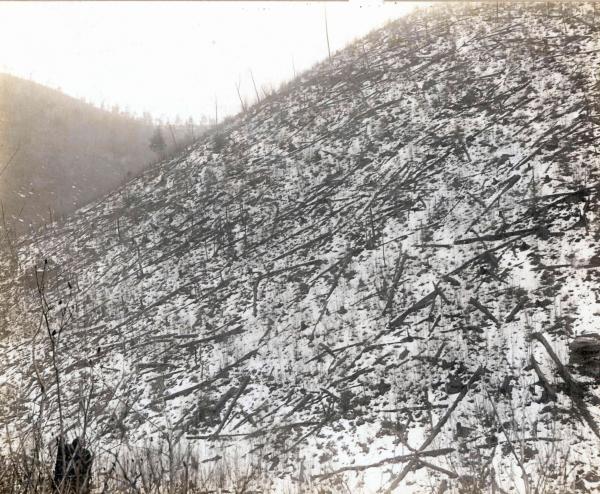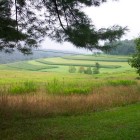To provide observations and information on the emerging fields of landscape scale conservation, heritage preservation, and sustainable community development.
Newsletter
Stay up-to-date with the latest nature, culture and community news.
We won’t spam you or share your information. Newsletters are sent approximately 10 times a year. Unsubscribe at any time.
Cultural Landscape Foundation Features Duncan Hilchey Interview
Government Shutdown: US National Park Service in the Spotlight

Places and People in Trouble
Can America’s small cities be saved? Practioners in the fields of historic preservation, parks and recreation, and community development across the country have tried to tackle this problem. The problem runs wide and deep. For example, in Pennsylvania over 30 municipalities, almost all of which could be characterized as small cities, have been designated financially distressed. All of these places have a similar litany of problems – declining population and tax revenue, high pension and health care costs, a large inventory of blighted or tax-exempt properties, and heavy burden of municipal debt. Recent opinion pieces in the New York Times and the Washington Post have highlighted the issue, now what? Read more.

PA Wilds: The Creative Economy and the Forest
In rural Northwest Pennsylvania, an effort is underway to link together conservation, recreation and local business development under the auspices of the state’s Conservation Landscapes Initiative (CLI). What do these complex partnerships look like in practice and what can one community reveal about how a CLI functions?

The Pennsylvania Supreme Court Offers a Lesson in Conservation History
As Pennsylvania confronts the next massive wave of resource extraction – natural gas drilling, its citizens now have a primer on the lessons from their past owing to a recent decision from the Pennsylvania Supreme Court on the constitutionality of Act 13, legislation from 2012 that sought to accommodate natural gas drilling. Learn more about what the court had to say about this controversial law.

Pennsylvania Agricultural History Project Wins National Award
The Vernacular Architecture Forum recently awarded the Pennsylvania Agricultural History Project its Paul E. Buchanan Award in recognition of the project’s contribution to the study of the nation’s built environment. The Agricultural History Project includes narrative histories describing the evolution of different farming systems around the state, historic census data, a field guide to historic farm buildings and landscapes, bibliographic resources and more.

Pennsylvania Hallowed Ground: A Landscape of Hope
Efforts are now underway in Pennsylvania to support the stewardship of more than 40 cemeteries where African American Civil War veterans were interred. This important project, Pennsylvania’s Hallowed Ground, builds on many years of work of by dedicated volunteers across the commonwealth. Learn more.

Places and People in Trouble
Can America’s small cities be saved? Practioners in the fields of historic preservation, parks and recreation, and community development across the country have tried to tackle this problem. The problem runs wide and deep. For example, in Pennsylvania over 30 municipalities, almost all of which could be characterized as small cities, have been designated financially distressed. All of these places have a similar litany of problems – declining population and tax revenue, high pension and health care costs, a large inventory of blighted or tax-exempt properties, and heavy burden of municipal debt. Recent opinion pieces in the New York Times and the Washington Post have highlighted the issue, now what? Read more.

PA Wilds: The Creative Economy and the Forest
In rural Northwest Pennsylvania, an effort is underway to link together conservation, recreation and local business development under the auspices of the state’s Conservation Landscapes Initiative (CLI). What do these complex partnerships look like in practice and what can one community reveal about how a CLI functions?

The Pennsylvania Supreme Court Offers a Lesson in Conservation History
As Pennsylvania confronts the next massive wave of resource extraction – natural gas drilling, its citizens now have a primer on the lessons from their past owing to a recent decision from the Pennsylvania Supreme Court on the constitutionality of Act 13, legislation from 2012 that sought to accommodate natural gas drilling. Learn more about what the court had to say about this controversial law.

Pennsylvania Agricultural History Project Wins National Award
The Vernacular Architecture Forum recently awarded the Pennsylvania Agricultural History Project its Paul E. Buchanan Award in recognition of the project’s contribution to the study of the nation’s built environment. The Agricultural History Project includes narrative histories describing the evolution of different farming systems around the state, historic census data, a field guide to historic farm buildings and landscapes, bibliographic resources and more.

Pennsylvania Hallowed Ground: A Landscape of Hope
Efforts are now underway in Pennsylvania to support the stewardship of more than 40 cemeteries where African American Civil War veterans were interred. This important project, Pennsylvania’s Hallowed Ground, builds on many years of work of by dedicated volunteers across the commonwealth. Learn more.


